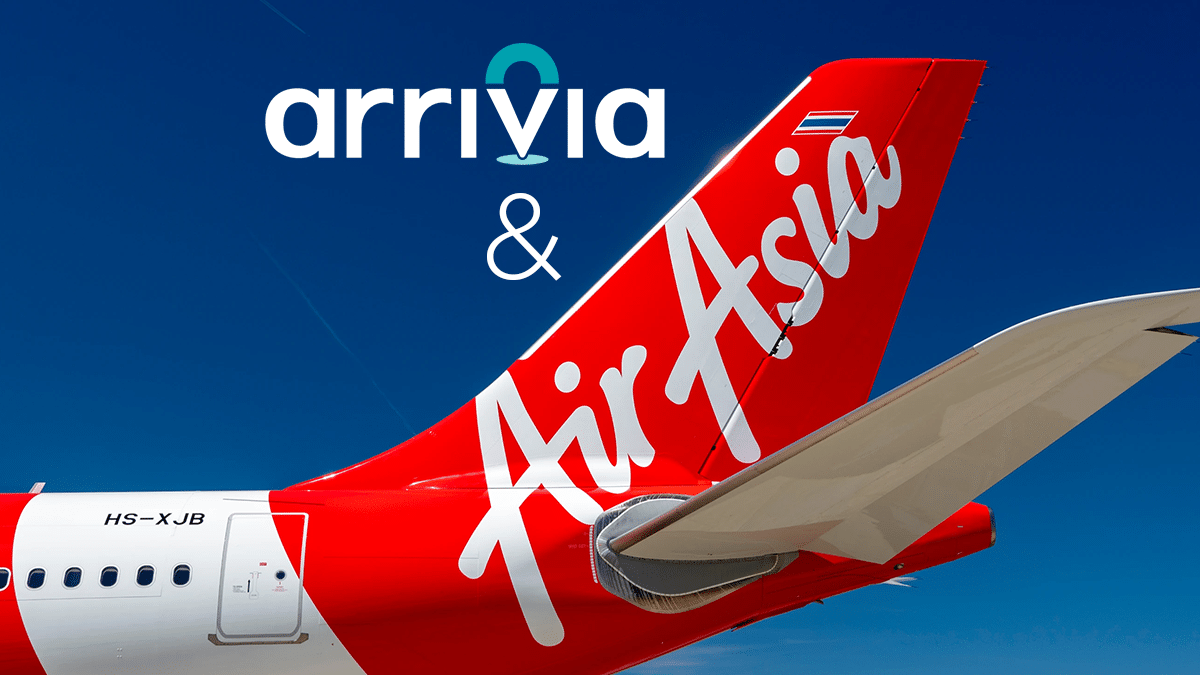Few industries move as quickly—nor in as high of quantities—as travel. More than 45,000 flights take off daily, nearly 3 million per month. The global hotel occupancy rate is almost 70% month-to-month. Even car rental agencies, which pale in comparison to the sheer volume of air carriers and hotel chains worldwide, are slated to rent 4 million vehicles monthly in 2024.
At the cornerstone of modern travel booking and management are Global Distribution Systems (GDS). GDS systems are fundamental networks in the travel industry, connecting millions of service providers with travel agents and tourism consumers worldwide. As crucial distribution channels for airline tickets, hotel rooms, and car rentals, GDS systems guide the travel industry in real time.
In this essential guide for businesses in the travel sector, discover what a GDS system is, how it operates, and its pivotal role in travel loyalty rewards.
What is a Global Distribution System (GDS)?
Let’s start with the basics: What is a GDS travel system? A global distributed system (GDS) is a networked system that enables transactions between traditional or online travel agencies (OTAs) and travel service providers, such as airlines, hotels, and car rental companies. These agencies can access real-time information about travel inventory, prices, and availability.
The history of GDS systems dates back to the early 1960s when American Airlines collaborated with IBM to develop the Semi-Automated Business Research Environment (Sabre) system to computerize the then-manual, time-intensive booking process. Known as the first GDS system, Sabre was a computer reservation system to automate travel bookings and distribute flight details to various travel agencies globally. Since then, GDS systems have evolved to include a broader range of travel services.
Today, the primary function of a GDS system is to aggregate and distribute real-time travel-related data to facilitate booking airline seats, hotel rooms, rental cars, and other travel-related services, such as tourism excursions and activities. Sabre has remained a popular GDS within the travel industry; however, several contenders like Amadeus and Travelport have also emerged.
How Does the GDS System Work?
It’s helpful to think of a GDS system as a central reservation system accessed by all travel agents to browse in-supply itineraries and travel inventories. GDS is a middleman between service providers and travel agencies, transmitting availability and booking information. It allows agents to compare rates and services across various providers to find the best options for their clients.
Seamless connectivity between providers and agencies is powered by advanced technology that syncs individual providers’ reservation systems with the shared GDS system, instantly reducing inventory across all channels once travel bookings are made. Real-time data transmission ensures travel agencies access the most current inventory, including availability, pricing, and promotional updates.
Beyond information sharing, GDS systems also process reservations and issue tickets for various travel services. Previously only a function for airline carriers, GDS systems now enable reservations for multiple travel products, including car rentals and hotel bookings. The GDS streamlines the booking process for agencies and customers by eliminating manual travel agent input.
The Importance of GDS in the Travel Industry
With more than six decades of service across travel markets worldwide, few technologies have as wide-reaching impact as GDS systems. GDS systems are integral in the global travel industry, connecting thousands of travel providers with travel agencies worldwide. They not only broaden the reach of travel providers but also enhance the booking options available to agencies.
Moreover, global distribution systems offer heightened efficiency and accessibility in booking processes. As the first travel technology to automate manual booking processes, GDS systems save time for travel agents and provide convenience for travelers. The robust, centralized system makes it easier for agents to manage complex bookings and simpler for travelers to plan multifaceted trips.
GDS systems are also valuable sources of travel trends and consumer preference data. Whether it’s monitoring popular corporate travel destinations and the behavior of corporate clients or gauging average travel spend for families, GDS systems help travel providers and agencies make more informed decisions about their service offerings, marketing channels, and pricing strategies.
Key Benefits of Using a GDS System
Undoubtedly, Global Distribution Systems are vital for the travel and tourism industry. They provide incredible value to travel companies selling large volumes of travel services, whether booking flights or scheduling hotel stays, and help enhance variety among smaller travel providers. Here’s a look at the key benefits of using a GDS system in a travel business or loyalty rewards program.
Expanded Market Reach for Providers
A listing on a GDS means significant exposure for travel service providers. The benefit is all in the name: Global Distribution System. By listing their services on a GDS, a travel provider can instantly increase their market reach to every corner of the globe, not just their local region.
- GDS connects travel providers to 650,000+ travel agents worldwide.
- It enables providers to scale their global profits by reaching millions of potential customers.
- Travel services, including flights, hotels, and car rentals, gain instant visibility in the travel marketplace.
Convenience and Choice for Agencies and Travelers
A GDS system aggregates vast amounts of travel data daily, eliminating hundreds of hours of manual labor for travel agents, service providers, and customers. With a GDS partner, travel agencies benefit from a vast selection of services and competitive pricing accessible from a single platform.
- Single-platform access: Agencies can browse, compare, and book multiple travel services in real time.
- Extensive variety: More flights, hotels, and rental options mean a more customized travel experience for customers.
- Streamlined pricing: Competitive rates are dynamically updated, ensuring cost efficiency for both agencies and customers.
Streamlined Operations for Efficiency
Global Distribution Systems have remained vital pillars of the travel industry for a good reason: they were designed to improve efficiency and continue to do just that. Automating and centralizing bookings and transactions through a GDS streamline operational processes, making it more efficient for travel agencies to manage and book travel services. They also enhance operations for travel service providers, simplifying inventory and reservation management with just a few clicks.

Future Trends and Evolutions in GDS
If Global Distribution Systems have been around since the 1960s, at what point will they modernize the software? The answer is that significant system providers have already modernized their GDS systems. The latest iterations of GDS systems are equipped with enhanced automation features to prepare travel agents and travel providers for upcoming evolutions, such as:
- Technological Advancements. As technology evolves, GDS systems continue to integrate new functionalities like artificial intelligence (AI) and personalized offerings to enhance their utility in the travel booking process and accommodate customer preferences.
- Challenges and Adaptations. GDS systems have faced challenges, such as direct booking trends and new competitors; however, system providers continuously adapt by expanding their services and integrating more advanced technologies, like predictive analytics.
- Sustainable and Responsible Travel. Emerging trends in sustainable travel also influence GDS platforms to include eco-friendly travel options and services, aligning with the growing demand for responsible tourism and scaling individual service listings.
Connecting GDS to Travel Loyalty Reward Programs
Beyond streamlining bookings, Global Distribution Systems (GDS) play a crucial role in powering travel loyalty reward programs. By integrating GDS into loyalty platforms, travel brands can offer members seamless access to flights, hotels, car rentals, and vacation packages using their earned rewards, enhancing both engagement and redemption rates.
GDS systems enable real-time pricing and availability, allowing loyalty programs to provide up-to-date redemption options. This eliminates outdated reward catalogs with limited offerings and ensures that members can book travel experiences just as easily as they would through standard online travel agencies. Additionally, travel providers benefit from increased occupancy and higher engagement as customers are incentivized to redeem rewards for travel services.
With GDS integration, loyalty programs can also incorporate dynamic pricing, allowing point values to adjust based on market demand. This flexibility enhances the program’s value proposition, making rewards more appealing and accessible to a broader audience.
By leveraging GDS-powered loyalty solutions, travel brands can maximize customer retention and create a more compelling rewards experience. The ability to combine real-time travel inventory with customizable loyalty offerings ensures that members receive premium value while providers optimize revenue and inventory management.
Leveraging GDS Systems with arrivia
If it’s not clear by now, Global Distribution Systems will remain essential to the travel industry for the foreseeable future. The ability to aggregate vast amounts of data, provide real-time updates, and streamline the booking process makes GDS indispensable for contemporary travel agencies and travel providers aiming to offer a broader range of services with enhanced efficiency and convenience. Now, the only question is, how can you also leverage the value of GDS systems for clients?
The answer is with arrivia white label travel loyalty rewards. Arrivia’s customizable and easily branded platform offers unique travel rewards and experiences, complementing the wide range of options available through GDS systems and capitalizing on continuous customer loyalty. To discover how incorporating arrivia with GDS can ramp up value for travel agencies, visit our About Us page!
Frequently Asked Questions
How do GDS systems aggregate flight, hotel, and car content?
Global distribution systems connect suppliers—like airlines, hotels, and car rental providers—to travel sellers via a centralized platform. Content is pulled from multiple sources in real time, offering standardized availability, pricing, and booking functionality across travel categories through a single interface.
What’s the difference between GDS, NDC, and direct connects?
GDS platforms aggregate content at scale, while New Distribution Capability (NDC) enables richer, more personalized offers directly from airlines. Direct connects bypass intermediaries entirely, linking suppliers to sellers for custom content. Each method offers trade-offs in control, reach, and data granularity.
How do GDS fees and incentives impact pricing and choice?
GDS fees may be passed along in fare pricing or absorbed through supplier incentives. These dynamics can affect rate competitiveness and influence which options are promoted or booked. Buyers must balance access to content with cost-efficiency when choosing booking channels.
Where do loyalty earn and recognition fit within GDS workflows?
Loyalty data is typically captured during booking when membership numbers are entered. While recognition often happens at check-in or in-flight, GDS workflows enable points accrual, status tracking, and visibility into partner loyalty offers—especially when integrated with customer profiles or CRM systems.



